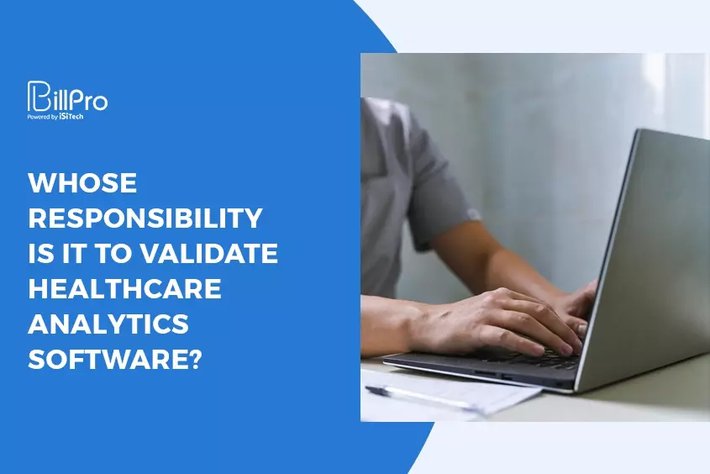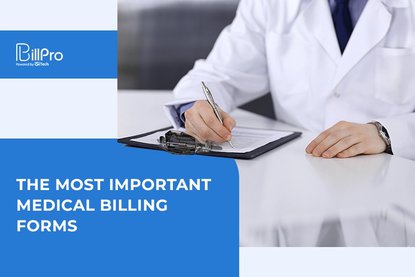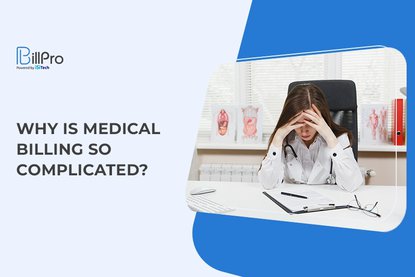When it comes to healthcare analytics, the healthcare sector has had significant growth. Oftentimes, healthcare entities overlook or underestimate the power of using analytics. The fact is that leveraging healthcare analytics works in favor of healthcare companies.
What is Healthcare Analytics?

In layman’s terms, healthcare analytics involves raw datasets that align with healthcare. The idea is to review this raw data and find hidden patterns and trends in the loop. It allows the health data analyst to make improvements throughout patient care and drive business growth.
It is vital to understand that healthcare analytics interconnects with healthcare data. And this includes hospital records, medical reports, and healthcare-related documents. Through healthcare analytics, you can personalize patient care and make strategic decisions. Healthcare facilities can embrace robust medical billing software.
The Need to Use Healthcare Analytics
Many healthcare organizations have realized the benefits of using healthcare analytics. Analytics can help healthcare entities transform operations. Validation of healthcare analytics ties together with the validation of market demand.
Healthcare companies can use a wide range of healthcare software solutions to improve operations. The ideal healthcare analytics software is compact and has added features to support healthcare needs. It is incredible that data analytics has had significant growth in a short time.
It is interesting that medical treatments across the world have become more expensive. But healthcare facilities can still bring down costs due to analytics. McKinsey data shows that healthcare expenditures are almost 18% of the US annual GDP, representing $600 billion in total. Healthcare analytics is helping companies optimize patient-care services and maintain optimal business operations.
Growth in the Healthcare Industry
The recent acceleration in healthcare shows how entities are leveraging analytics. With continuous market validation of analytics software, healthcare firms have become more innovative. And in the early stages, it allows them to extract more insightful user feedback.
What is a Health Data Analyst?
Healthcare data analysts no longer operate on the fringes. In fact, the role of the healthcare analyst connects to modern medical treatments. A health data analyst runs seamless medical operations and brings down healthcare expenses.
At its core, a healthcare data analyst transforms the organization's system. And all it takes is analyzing health records, billing records, expenditure reports, and patient care surveys. You may have heard about health data analysts as healthcare business analysts. Health data analysts review the business and provide support to administrators and managers.
It allows them to make logical and strategic decisions. It requires continuous effort to address main problems and achieve main business objectives. A health data analyst undertakes a long list of responsibilities. It can include collecting data, communicating findings, and recommending improvements,
A dedicated health data analyst looks for unique patterns after analyzing healthcare data. They also organize raw data sets and retrieve healthcare data from systems. Health data analysis plays a central role when improving patient outcomes. They also play a key role in optimizing internal operations.
Increased Demand Continues to Push Healthcare Analytics’ Role
Typically, healthcare entities throughout the world struggle to cut back on costs and maintain seamless coordination. With the entrance of healthcare data analytics, there is no more pressure in the vacuum. It means getting the supply of sophisticated information and valued insights is no longer an issue for healthcare organizations.
Moreover, healthcare organizations can use dedicated solutions to validate and affirm the degree of accuracy across layered information. Again, the idea is to improve the quality of care, optimize business operations, and generate a higher revenue stream.
Data analytics is a new paradigm - healthcare entities are now using it to make data-driven decisions on an enterprise level. Strong demand for healthcare data analytics ties together with the value and transparency of patient care. Through validated and reviewed healthcare analytics, organizations can expose potential fraud and put in place more effective regulations to create more transparency across operations.
Validation of Healthcare Analytics and Predictive Analytics
Healthcare facilities can use predictive analytics to accelerate operational processes and improve outcomes. Using analytics, healthcare organizations can tap into new insights and identify new opportunities. But data validation requires additional tools to improve operations and drive clinical support to resolve main business challenges.
More and more healthcare organizations are adapting and embracing a model that incorporates advanced predictive analytics for validation. From a broad perspective, it is a significant transition from collecting information to data analysis. It is a new capability for healthcare organizations to make their analytics-based decisions more uniform and logical.
Predictive analytical tools utilize historical information to anticipate future activities paired with model scenarios. Validation of healthcare data analytics comes into play after using forecasting and simulation. It makes it possible for healthcare organizations to render a personalized method for healthcare decision-making, healthcare engagement, and predict the behaviors of consumers.
Healthcare organizations need to dive into predictive analytics to validate their decision-making process. Healthcare entities can use these insights to accelerate and scale up operations. Healthcare organizations can also use the same validated insights to influence potential outcomes and operational performance in different patient care areas and drive long-term financial success.
What is the Best Way to Validate Healthcare Analytics?
Today, there is no shortage of healthcare analytics software solutions. You can use advanced tools to create an interconnected and smarter healthcare system. Using these solutions, you can help clinicians to deliver better patient care. Simultaneously, it gives healthcare organizations a chance to empower their personnel to make more logical choices.
In the quest for innovation and tech research, healthcare analytics software solutions are at the forefront to help organizations drive unprecedented operational efficiency and improve care. And it takes validated and sophisticated insights to influence and improve outcomes. Validation of healthcare insights also allows organizations to build a patient-driven and sustainable system that focuses on providing value.
How Can Analytics Help Healthcare?

It would be fair to state that healthcare data analytics is changing. It means how the healthcare industry approaches patient care and business operations. Of course, implementing data analytics solutions would’ve been unfathomable for healthcare firms.
But today, analytics has evolved enough to support various aspects of a business. With analytics, healthcare companies can better analyze and review researched data. It allows healthcare facilities to cut back operational costs and improve the quality of patient care. It also allows them to mitigate the likelihood of illnesses and predict diseases.
Data analytics has become integral to the healthcare industry. And why wouldn’t it be? Data analytics offers healthcare firms a chance to steer in the right direction. With data analytics, healthcare players can spot anomalies.
Remember that data analytics software solutions run on ML and AI-based algorithms. It helps healthcare facilities shed new light on the available data. It means healthcare firms can render spot-on readings of 3D scans and MRI images.
Data analytics helps healthcare firms save valuable time and resources. One of the use cases of data analytics is that it allows healthcare firms to review their medical professionals. The key is to review and analyze data that can help healthcare entities see the efficacy of each active practitioner.
Several healthcare facilities now use collected data. It allows them to review their medical professionals and make further data analysis. The goal of healthcare organizations is to provide accurate data to medical practitioners. It improves how they approach patients based on collected patient feedback.
What Should be Your Approach to Choosing a Solid Healthcare Analytics Solution?
Most healthcare organizations are now aware of the importance of healthcare analytics and how its validation and implementation can transform consumer data and patient care. At its core, it’s all about collecting and reviewing analytical data. Opt for a value-based healthcare analytics software solution that gives you quick access you robust and reliable data and minimizes implementation costs.
Final Thoughts
In healthcare, finding a reliable software developer has become easier than ever. In the last few years, data analytics has become more accurate and has more power to work wonders for healthcare organizations. As the tech advances, you can expect healthcare facilities to make data-driven decisions.
Implementing healthcare analytics does more than help healthcare facilities predict diseases. It allows them to improve the quality of patient care and reduce treatment expenditures. With data analytics, healthcare firms can mitigate the impact of other potential issues. Analytics in healthcare streamlines operations and accurate administration of patient care.

 5/5 (1 vote)
5/5 (1 vote)
 158 views
158 views




